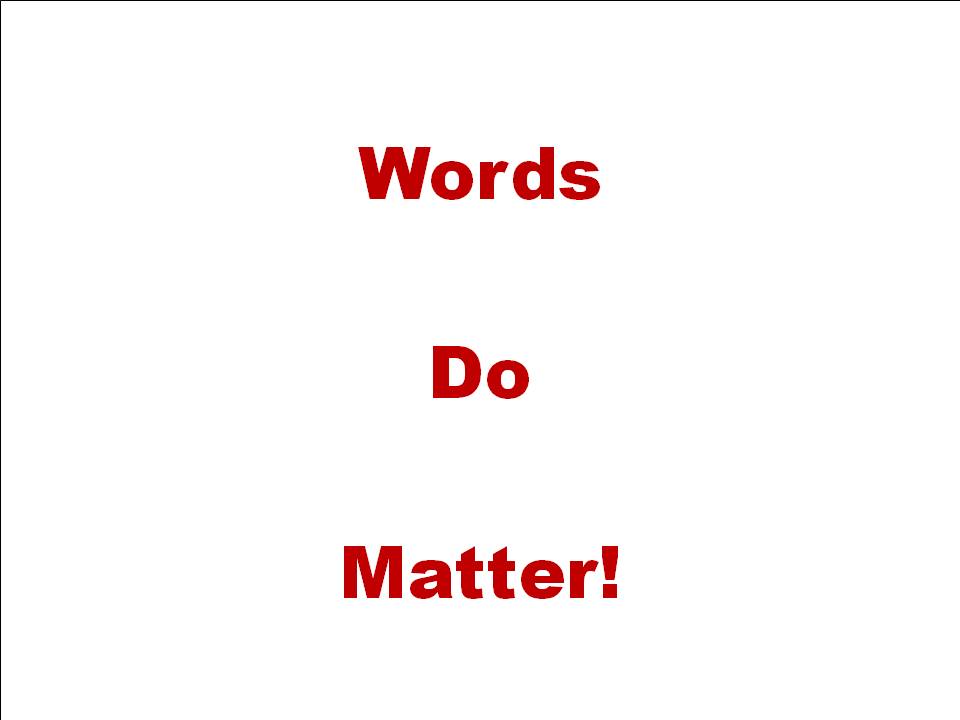by Peter A. Arthur-Smith, Leadership Solutions, Inc.®
“No matter what anybody tells you, words and ideas can change the world.” – John Keating: as portrayed in 1989 film ‘Dead Poets Society’ by Tom Schulman

Words do seem to count! Have you ever thought about how our workplace words play their part in inhibiting momentum? Let’s take a look at a few common conventional management words we use today and compare them with enlightened leader alternatives; where the latter are in parentheses:
» Headcount (People)
» Bureaucracy (Organization flow)
» Risk averse (Opportunity aware)
» Structure (Framework)
You can already perceive the difference in tenor. Notice how the enlightened leadership words are more likely to elicit a positive response. You can almost imagine peeking your people’s interest to a far greater extent and how their probable positivity will accelerate. We can go further and add others like:
» Accountable (Empower) » Analysis/Analyze (Discovery/Discover)
» Drive (Orchestrate) » Employee (Contributor)
» Policies (Principles) » Supervisor (Team Leader)
By drawing upon this second round of examples, we can begin to note:
» Accountable (Empower) – Accountable is a highly utilized conventional management (CM) term. It’s shorthand for implying that the buck stops with the person who’s being held accountable. Enlightened leaders, on the other hand, appreciate that not only do they share some of the responsibility, but they are also responsible for ensuring that their team members are properly role-suited, educated and resourced to meet the expected task at hand. That is the moment their people feel empowered to accomplish what they’ve been assigned. Too often, CMs just assign a task to their “employees” – see word use below – and are expected to take care of it: no questions asked.
» Analysis/Analyze (Discovery/Discover) – Again analysis/analyze are very common words used by conventional managers (CMs). They imply people sitting around wearing green visors and pouring over streams of data – something many people would rather not be doing and usually avoid like the plague. Just think how much more positive the task might be if team leaders invited team members to discover the most important issues related to any particular exercise. People, more often than not, are drawn by a likely discovery experience. Just imagine the team leader asking: “Can we discover the best way of doing this?” rather than, “Let’s analyze how we should do it.” The latter will more likely bring some groans!
» Drive (Orchestrate) – Drive unfortunately is an overly used conventional management word. It smacks of pushing and forcing people forward – possibly against their natural will. Alternatively, when enlightened team leaders orchestrate their people or events, it sounds as though their team members will participate willingly. This is because team leaders take advantage of natural forces or momentum.
»Employee (Contributor) – Employee sounds like a conventional management ownership word: “my employee.” The employee almost feels as though they’re owned by their employer. Why not view them for what they are there for – to be a contributor? Then a team will be comprised of high contributors, contributors or non-contributors. In the case of non-contributors, they should be encouraged to move along to something else more suited to their particular skills.
» Policies (Principles) – Policy is a heavily legalistic term that implies that everything is within a rigid straightjacket. Employees are expected to use them like a “bible” by which everyone has to live and breathe by. They are not to be questioned. Principles, on the other hand, sound more like well thought out beliefs that can be questioned and are part of an organization’s code of honor. Enlightened leaders prefer their teams to be operating through principles and practices, rather than the conventional manager’s policies and procedures. The former are always open for discussion and willing endorsement, whereas the latter are often bureaucratic and “cast in stone.”
» Supervisor (Team Leader) – The 20th-century, industrial age term supervisor used by conventional managers is crying out for a better alternative. It smacks of those guardians who are required to look over their employees’ shoulders every hour of every day. It also implies that their employees know relatively little and therefore need someone to supervise and “tell them what to do.” It’s clear that most modern day working people would rather be led than supervised, since the former mode suggests an inspirational rather than a controlling force.
From these few examples we can see the potential for releasing considerable additional goodwill among team members just by changing the everyday words we use. (NOTE: These examples will be vastly expanded in this writer’s forthcoming book, “Breakthrough Leaders: Enlightened Leadership Delivers!”) Too often our current workplace vocabulary is steeped in conventional management terms such as project, plan, organize, direct and control: part of a by-gone age when workplace people expected to “be told what to do.” The complementary enlightened leadership (EL) terms by contrast are: envision, position, engage, collaborate and orchestrate. We need both sets, although preferably tilted toward the latter EL ones.
It’s rather like a 19th-century word that conventional managers and supervisors love to use – “oversee.” This word is a legacy of the pre-20th century work environment, when we had overseers and helpers, versus 20th century managers and employees, and now the 21st-century: leaders and contributors. Consequently, if you are still using the term “oversee,” you remain a relic of the 19th century! And so, words do count – a lot!
To learn more about building momentum, talk with:
